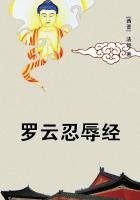"I must have that arm," exclaimed Solling, when the first burst of admiration had passed. "When I bleach it and touch it up with varnish, it wild be a superb specimen. I'll take it home with me.""No," I exclaimed, "I can't permit it. It was wrong of me to bring it away from the churchyard. I'm going right back to put the arm in its place.""Well, will you listen to that?" cried Solling, amid the hearty laughter of the others. "Simsen's so lyric, he certainly must be drunk. I must have that arm at any cost.""Not much," cut in Niels Daae; "you have no right to it. It was buried in the earth and dug out again; it is a find, and all the rest of us have just as much right to it as you have.""Yes, everyone of us has some share in it," said some one else.
"But what are you going to do about it?" remarked Solling. "It would be vandalism to break up that arm. What God has joined together let no man put asunder," he concluded with pathos.
"Let's auction it off," exclaimed Daae. "I will be the auctioneer, and this key to the graveyard will serve me for a hammer."The laughter broke out anew as Daae took his place solemnly at the head of the table and began to whine out the following announcement: "I hereby notify all present that on the 25th of November, at twelve o'clock at midnight, in corridor No. 5 of the student barracks, a lady's arm in excellent condition, with all its appurtenances of wrist bones, joints, and finger tips, is to be offered at public auction. The buyer can have possession of his purchase immediately after the auction, and a credit of six weeks will be given to any reliable customer. I bid a Danish shilling.""One mark," cried Solling mockingly.
"Two," cried somebody else.
"Four," exclaimed Solling. "It's worth it. Why don't you join in, Simsen? You look as if you were sitting in a hornet's nest."I bid one mark more, and Solling raised me a thaler. There were no more bids, the hammer fell, and the arm belonged to Solling.
"Here, take this," he said, handing me a mark piece; "it's part of your commission as grave robber. You shall have the rest later, unless you prefer that I should turn it over to the drinking fund."With these words Solling wrapped the arm in a newspaper, and the gay crowd ran noisily down the stairs and through the streets, until their singing and laughter were lost in the distance.
I stood alone, still dazed and bewildered, staring at the piece of money in my hand. My thoughts were far too much excited that Ishould hope to sleep. I turned up my lamp and took out one of my books to try and study myself into a quieter mood. But without success.
Suddenly I heard a sound like that of a swinging pendulum. Iraised my head and listened attentively. There was no clock either in my room or in the neighboring ones--but I could still hear the sound. At the same moment my lamp began to flicker. The oil was apparently exhausted. I was about to rise to fill it again, when my eyes fell upon the door, and I saw the graveyard key, which Ihad hung there, moving slowly back and forth with a rhythmic swing.
Just as its motion seemed about to die away, it would receive a gentle push as from an unseen hand, and would swing back and forth more than ever. I stood there with open mouth and staring eyes, ice-cold chills ran down my back, and drops of perspiration stood out on my forehead. Finally, I could endure it no longer. Isprang to the door, seized the key with both hands and put it on my desk under a pile of heavy books. Then I breathed a sigh of relief.
My lamp was about to go out and I discovered that I had no more oil. With feverish haste I threw my clothes off, blew out the light and sprang into bed as if to smother my fears.
But once alone in the darkness the fears grew worse than ever.
They grew into dreams and visions. It seemed to me as if I were out in the graveyard again, and heard the screaming of the rusty weather vane as the wind turned it. Then I was in the mill again;the wheels were turning and stretching out ghostly hands to draw me into the yawning maw of the machine. Then again, I found myself in a long, low, pitch-black corridor, followed by Something I could not see--Something that drove me to the mouth of a bottomless abyss. I would start up out of my half sleep, listen and look about me, then fall back again into an uneasy slumber.
Suddenly something fell from the ceiling onto the bed, and "buzz--buzz--buzz" sounded about my head. It was a huge fly which had been sleeping in a corner of my room and had been roused by the heat of the stove. It flew about in great circles, now around the bed, now in all four corners of the chamber--"buzz--buzz--buzz"--it was unendurable! At last I heard it creep into a bag of sugar which had been left on the window sill. I sprang up and closed the bag tight. The fly buzzed worse than ever, but I went back to bed and attempted to sleep again, feeling that I had conquered the enemy.
I began to count: I counted slowly to one hundred, two hundred, finally up to one thousand, and then at last I experienced that pleasant weakness which is the forerunner of true sleep. I seemed to be in a beautiful garden, bright with many flowers and odorous with all the perfumes of spring. At my side walked a beautiful young girl. I seemed to know her well, and yet it was not possible for me to remember her name, or even to know how we came to be wandering there together. As we walked slowly through the paths she would stop to pick a flower or to admire a brilliant butterfly swaying in the air. Suddenly a cold wind blew through the garden.
The young girl trembled and her cheeks grew pale. "I am cold," she said to me, "do you not see? It is Death who is approaching us."I would have answered, but in the same moment another stronger and still more icy gust roared through the garden. The leaves turned pale on the trees, the flowerets bent their heads, and the bees and butterflies fell lifeless to the earth. "That is Death," whispered my companion, trembling.















